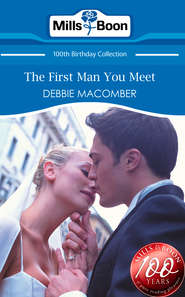По всем вопросам обращайтесь на: info@litportal.ru
(©) 2003-2025.
✖
Ultimate Cedar Cove Collection
Автор
Год написания книги
2019
Настройки чтения
Размер шрифта
Высота строк
Поля
“No.”
Troy exhaled slowly. “This is our John Doe?”
Roy couldn’t be sure of that, but he had his suspicions. “Might be.”
Troy continued to study the screen. “When did you find all this out?”
Roy gave him a halfhearted smile. “A while back. I dug up what I could and now I’ve decided it’s time to bring you into the investigation.”
Davis snorted. “I appreciate that, but I wish you’d come to me sooner.”
Roy still wasn’t a hundred-percent sure he was doing the right thing, as far as Bob or Grace Sherman were concerned, but withholding material information put him at risk of committing a crime himself. In his view, everything revolved around what those four men had done in Vietnam.
Troy tapped his fingers on the desk. “Before I go making an idiot of myself, did you talk to anyone in California?”
“Like who?”
His gaze went back to the computer screen. He did some more typing and glanced at Roy again. “Hannah Russell,” he said. “Says here she’s the one who filed the missing person’s report.” He scrolled down. “Probably the wife.”
“Daughter,” Roy corrected.
“Did you talk to her?” Davis demanded. The friendly pretense was gone now.
“And step into the middle of your investigation, Sheriff?” he asked. “Would I do that?”
“I hope to hell not, but I thought I’d better ask.”
“She’s all yours,” he said. His purpose in making this visit had been achieved. He’d leave the rest in Sheriff Davis’s capable hands. “I don’t suppose you’d like to thank me.”
“No,” Davis barked. “I’d like to know how long you’ve been holding on to this information.”
That wasn’t a question Roy wanted to answer. He’d kept it to himself as long as he dared. If possible, he wanted to keep Dan Sherman’s family out of this.
“Any idea why our John Doe arrived in Cedar Cove carrying false identification?”
“That I can’t tell you,” Roy said. The sheriff would talk to Hannah Russell, and would eventually check out Samuels, too. Roy’s investigation had led him to the other man, who lived in the Washington, D. C. area, but Roy hadn’t contacted him. He’d leave that to Davis, as well.
“What about the reconstructive surgery? I hear some people in town still think it was Dan Sherman. DNA says otherwise.”
“I’d trust what the lab tells you,” Roy said, lost in his thoughts.
“I do, but I’ve heard the rumors.”
Roy had, too. People liked to speculate. It was mighty convenient to believe the dead man could’ve been Dan Sherman, although Roy hadn’t heard much talk of that in recent days.
Roy stood to leave. He’d said everything he intended to and not a word more.
Davis stood, too. “I’ll thank you, then.”
Roy walked out of the office and through the department. He’d thought hard about this visit. He wouldn’t betray Beldon’s trust, but there was certain information he could no longer withhold. Beldon was the one who’d given him Russell’s and Samuels’s names—and given him permission to tell the sheriff.
Four unsuspecting soldiers had been trapped in a Southeast Asian jungle that day and walked straight into hell. What happened next had forever altered the lives of these men, whose sole desire was to come home alive. They’d seen too many of their friends and comrades leave Vietnam in body bags. To them, at that time, it was kill or be killed. War had changed them, changed their world.
Corrie was waiting when Roy returned to the office. “How’d it go?” she asked.
Roy took off his jacket and hung it on the coat tree in the entry. “About as well as could be expected,” he murmured.
“Does Bob know you’ve talked to Troy Davis?” she asked.
Jack had been looking forward to this Friday night for two weeks. Because of some commitment Olivia had at the courthouse, she was working late today and had agreed to meet him for dinner at The Lighthouse. They hadn’t had a real honest-to-goodness date since before Christmas, and he’d missed her company. Oh, there’d been lots of phone calls, a couple of quick cups of coffee, but they were both busy people with complicated lives.
The newspaper conglomerate, which had bought out the once privately owned paper a few years ago, was investigating the possibility of increasing publication from biweekly to five days a week and eventually taking it to a full seven. While the thought of those extra issues and journalistic opportunities excited him, he wasn’t sure this additional responsibility would be worth the toll it would take on his personal life. A daily paper meant hiring and training extra staff, editorial meetings, more administrative duties.
There was no better way to hook a newsman than offering him more column space. His publisher was well aware of that fact and was using it to his advantage—that and a hefty pay raise. Still, Jack hesitated. As it was, he didn’t see nearly as much of Olivia as he wanted to. He hoped that, someday in the near future, she’d become a permanent part of his life.
“Would you like to be seated now, Mr. Griffin?” the hostess at the restaurant asked him. “I can show Judge Lockhart to your table once she arrives.”
“Sure,” Jack said, impressed that the young woman knew him and Olivia. But then he decided it shouldn’t surprise him. Justine Gunderson and her husband, Seth, owned The Lighthouse, and Justine, after all, was Olivia’s daughter. Besides, his picture appeared in the paper next to his weekly column—a rather flattering photograph if he did say so himself.
The table was one of the best, with a view that overlooked the cove. The marina lights dancing across the water’s surface had a festive quality that cheered him. He could see the naval shipyard on the other side of the cove, too. Currently it housed an aircraft carrier, several destroyers and any number of diesel submarines docked there for repairs.
The waiter arrived and Jack ordered coffee, then studied the menu. Only five minutes later, Olivia showed up, breezing into the room with a smile warm enough to melt the iciest heart.
“I hope I didn’t keep you waiting long?” she said, slipping into the chair across from him. She looked flustered but happy and excited.
She was so damn pretty it was hard for Jack to take his eyes off her. “Yup. I’ve been waiting for hours.” Which was true; he just hadn’t been sitting at the restaurant all that time.
Olivia stretched her hand across the table and Jack linked his fingers with hers. “I’ve been anticipating tonight,” she said. “Being with you…”
“Me, too.” This was a minor understatement. “Any update on your mother’s fight with City Hall?” he asked before he made a fool of himself by staring at her.
Olivia looked up from the menu. “You didn’t hear?”
“No, what?” Usually Jack was the first to pick up on local gossip. But he hadn’t seen as much of Charlotte as he used to. For a while she’d written a seniors’ column for The Chronicle, but had given it up when she was diagnosed with cancer. She’d meant to continue now that she’d recovered, but had become engrossed in her current issue, a community health clinic.
“My mother and this newfound friend of hers have decided to stage a demonstration.” Olivia frowned. “I don’t know much about this Ben character, do you?”
Jack didn’t, but he wasn’t going to let her sidetrack him. This was real news. “Demonstration for what? A health clinic?”
Olivia sighed deeply. “You know my mother! Personally I think it’s Ben Rhodes who put the idea in her head. In any event, Mom’s convinced this is what our community needs.”
Jack nodded; he agreed with Charlotte.
“Mom insists she tried to go through the normal channels, but no one wants to hear it, what with all the budget cuts,” Olivia went on. “I’m afraid she’s going to take matters into her own hands.” Olivia shook her head. “In which case, God help us all.”
Jack struggled not to smile. At Charlotte’s urging he’d written several supportive editorials on the need for a health-care clinic.
“Jack Griffin, I swear if you plaster my mother’s picture on the front page of The Chronicle with her holding some ridiculous sign, I may never forgive you.”











